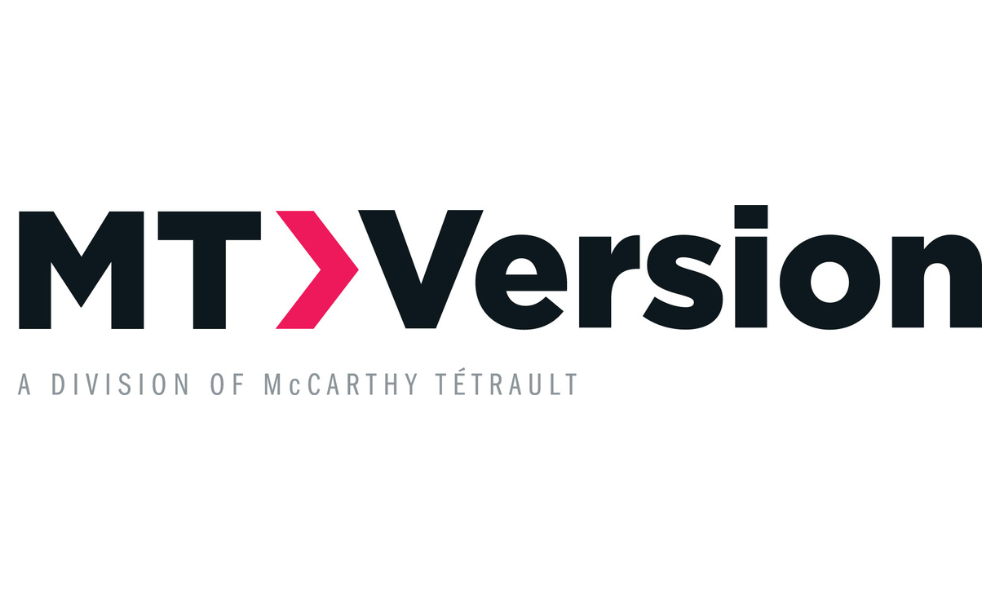The recent enactment of An Act respecting French, the official and common language of Québec (“Bill 96”) and of An Act to amend the Official Languages Act, to enact the Use of French in Federally Regulated Private Businesses Act and to make related amendments to other Acts (“Bill C-13”) marks a significant shift in Canada's language requirements, particularly in the province of Quebec. These legislative developments reinforce the use of French and emphasize its status as the official and common language of Quebec. A careful examination of these new legal frameworks reveals several key considerations for businesses, government agencies, and the legal community. MT>Version, a division of McCarthy Tétrault, has been monitoring this legislation and have adapted their unique approach to address the challenges posed to their clients.
Both legislations underscore the primacy of French in all formal and legal communications. Bill 96 requires that all contracts of adhesion, contracts containing standard clauses, and related documents must be drafted in French. Similarly, contracts with the Government must be drafted exclusively in French (with few exceptions); any document sent to government agencies for permits, authorizations, subsidies, or financial assistance must also be drafted in French.
Bill 96 also imposes specific obligations on employers. All employment, transfer or promotion offers, individual contracts of employment, and written communications between an employer and employees must be in French. Furthermore, any document made available by an employer, including application forms, employment conditions, and staff training materials, must be drafted in French. If they are available in another language, their French version must be accessible under equally favorable conditions.
Additional requirements extending to the judicial field would require every legal pleading that is drafted in English to be accompanied by a certified French translation. These judicial linguistic requirements, along with those mandating the translation into French of judgments rendered in English, have been challenged on constitutional grounds and their application has been suspended until the issue is resolved.
Bill C-13 takes language rights a step further by extending the use of French to federally regulated private businesses operating in Quebec and other regions of Canada with a strong francophone presence. This ensures that employees in these regions have the right to work in French, further encouraging the use of the French language. Businesses must review and adapt their language policies and practices to ensure they provide an environment conducive to the use of French.
These changes emphasize the need for businesses and individuals in the regions concerned to adapt and incorporate the use of French into their operations and communication strategies. They represent a significant shift in language rights in Canada, one that underscores the importance of the French language in Quebec and beyond and highlight the importance of qualified translators in ensuring accurate legal translation compliance.
The new requirements introduced by Bill 96 and Bill C-13 necessitate a comprehensive review and overhaul of existing documents and communications strategies by businesses to ensure compliance. This places a significant responsibility on individuals and organizations to ensure accurate translation and compliance with the law. It highlights the need for competent translation experts who can accurately translate these texts while maintaining their legal validity.
Certified translators are professionals who have a comprehensive understanding of both the source and target languages, allowing them to accurately convey the content and meaning of the original text. In addition to language proficiency, certified translators specializing in legal translation have a solid understanding of the legal systems and terminologies of both languages, which is crucial for preserving the legal accuracy and validity of the translated document.
Lawyer-revisors are full-fledged lawyers who review, correct, and improve legal translations. They verify the accuracy of legal terms and the consistency of the text, check for any potential legal discrepancies and ensure that the translation perfectly reflects the original legal document while adjusting the target language output for style and readability. Their sharp attention to details and expertise in legal drafting also enable them to suggest improvements to the legal language of source documents.
The translation of legal documents carries significant implications. A slight mistranslation or misinterpretation can alter the meaning and intention of a legal text, leading to potential legal disputes, violations of rights, or even financial losses. Non-compliance with the language requirements can also lead to legal penalties or adverse public relations consequences for the entities involved.
Given the potential legal implications, even minor errors or inconsistencies in the translated documents can have major consequences. This necessitates a meticulous attention to detail and a rigorous review and quality control process to ensure the accuracy and reliability of the translated documents.
In conclusion, the translation of legal documents is a complex process that requires expert knowledge and skills, rigorous quality control, and a deep understanding of the relevant legal systems and terminologies. Entrusting this task to certified translators and lawyer-revisors ensures the accuracy, legality, and reliability of the translated documents, thereby safeguarding the rights and interests of all parties involved.
MT>Version combines human know-how and artificial intelligence to ensure that legal translations are carried out with the care they require.
MT>Version is comprised of seasoned legal translation specialists (including lawyer-revisors), who are all OTTIAQ certified translators, and of a support team trained in project management and translation processes. MT>Version can provide the certification required by Québec legislation and/or the translation opinion required in various sensitive business and securities dealings certifying that the translated version is in all material respects a complete and proper translation of the original version.
MT>Version has designed a complete legal translation solution, including secured machine translation software (cloud-based and on-site servers using a proprietary bilingual database with more than a million legal terms) with a set of tailored tools (translation memories, macros, lexicons) and processes (pre-edition and post-edition), which altogether allow a wide range of prices and delivery times with high quality results.
MT>Version’s offering consists of several translation levels, from raw machine (to initiate a project or negotiations) to lawyer revised translation with certification and opinion (to sign a contract or close a transaction), with cost range and delivery times varying according to the degree of specialist intervention. Such range of options allows for flexibility and adaptation to client projects, circumstances, budgets and desired final results.
For further information or a quote, contact MT>Version or by telephone at (438) 808-0055. Additional information about our services is available here.
***
 Michel Bergeron, Counsel
Michel Bergeron, Counsel
Meticulous in his approach and swift in his execution, Michel Bergeron is our clients’ go-to source for legal translations. Michel is a counsel, Head of MT>Version, the legal translation division of McCarthy Tétrault, and a lawyer-revisor in Montréal.
Michel reviews legal translations with respect to a wide range of documents relating to business law and securities issues.
Michel is a certified translator, former member of the board of directors and member of the Ordre des traducteurs, terminologues et interprètes agréés du Québec (OTTIAQ), member of the Canadian Association of Legal Translators (CALT) and the Canadian Bar Association (CBA) and permanent member of the Québec Writers Union (Union des écrivaines et écrivains du Québec). He is the author of the Practical Legal Lexicon in Business Law , published by Gaudet Éditeur, and has been a teacher (lecturer) of legal translation (for Bachelor's degree in Translation) at the Université de Montréal and visiting professor (Master's degree in Legal Translation) at the University of Ottawa. He is the author of numerous articles on legal translation and acts regularly as a speaker and resource person for the specialized press. He is also the author of four novels, published by Éditions du Boréal, Éditions JCL and Leméac Éditeur, and numerous short stories (published notably by Éditions XYZ, Stop and Bénévent).
Michel received his LLL from Université Laval in 1980. He was called to the Québec bar in 1981.
***
 François Ouellette, Associate
François Ouellette, Associate
François Ouellette is an associate with MT>Version, the legal translation division of McCarthy Tétrault. He is a lawyer-revisor in Montréal.
Me Ouellette reviews legal translations of a wide range of documents relating mainly to business, commercial, securities law and litigation.
Me Ouellette is also a certified translator (C. Tr.), member of the Ordre des traducteurs, terminologues et interprètes agréés du Québec (OTTIAQ). He wrote a master’s thesis titled L’accès des caméras de télévision aux audiences des tribunaux published by Éditions Thémis. He is a member of the Canadian Association of Legal Translators. He speaks French, English and German.
Me Ouellette received a Bachelor of Laws (LL.B.) from the Université de Montréal in 1991, a Masters in Law from the Université de Montréal in 1995 and a MBA from the McGill University in 1999.
He was called to the Québec Bar in 1992.
***
 Marie-Eve Bédard, Operations Manager
Marie-Eve Bédard, Operations Manager
Marie-Eve Bédard is an operations manager and supports the MT❯Version team, the legal translation division of McCarthy Tétrault. She has many years of experience as a legal assistant and as an operations specialist. Prior to joining McCarthy Tétrault she was a paralegal working in a criminal law firm. Marie-Eve has a certificate of law from the Université de Montréal.





